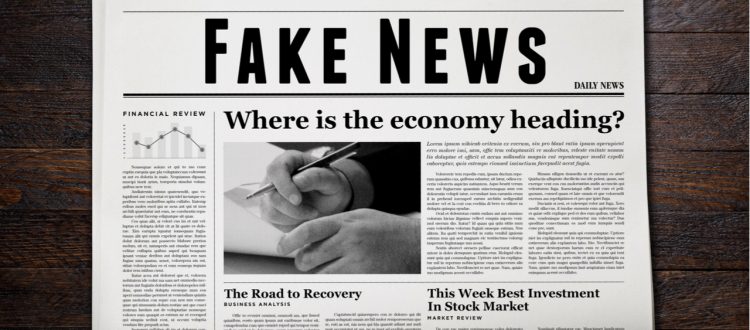Fake news and financial pornography
Sensationalist media is nothing new, but in the past ten years the number of delivery formats, and hence the sheer quantity of outraged, agenda-laden and scaremongering articles, has exploded. You don’t need to buy a newspaper, turn on the television, or even look for sensationalist headlines; sat at your desk, advertisements, direct email and social media posts will quickly find you.
Tabloid papers are still particularly guilty, having hidden agendas to publish dramatic material because, frankly, it sells. Yes, they are subject to legalities regarding libel, privacy and copyright, but there is no restriction on using terms such as market ‘CRASH’ or ‘CRISIS’, conjuring doom amongst investors when in reality, it’s nothing more than a temporary market decline.
The social aspect
Then we get on to social media; the vast majority of news outlets run huge social campaigns and share stories of their particular persuasion. Social media is so powerful, the speed and reach of viral news is astounding, you have to consider the effect a sensational financial post can have on investors.
One of the more recent prolific examples was Elon Musk, tweeting; “Am considering taking Tesla private at $420. Funding secured”. This was just hours after the Financial Times reported that Saudi Arabia’s sovereign wealth fund had bought up to five per cent of the business. The Financial Times had already raised Tesla’s stock price with their story, but it soared after Musk’s tweet.
The legality around the situation has come in to question since, but Musk’s intention is widely speculated to have been to wreak havoc for short-sellers, who were gambling on Tesla’s stock price falling. Stirring that huge market influence? A solitary tweet. It’s worth noting the company has not to-date gone private and the share price remains volatile.
Clearly, in the context of investment and financial services alone, Twitter posts can be very influential. Social media can provide a big voice for people or businesses with an agenda, who are ill-informed or are simply illegitimate. You have to be cautious.
It’s probably wise to not debate Mr Trump’s Twitter use and its potential consequences, but…
Fake news: Defined as “false, often sensational, information disseminated under the guise of news reporting”, fake news was the Collins Dictionary word of the year. I would suggest there are two types of fake news; barefaced lying or omitting crucial details. You could argue that some sensational financial reporting is the latter, but on occasion, the former?
‘HOT FUNDS TO INVEST IN NOW!’
As the headline would suggest, financial pornography is designed to generate excitement rather than add any real value. It is nothing more than an attempt to sell products or funds. One of the worst examples has to be (sorry if I’m labouring the point from last month) performance-based marketing.
You’ll find countless articles such as; ‘If you invested £1,000 in [insert share name] in 2010, here’s what it would be worth now’, but what value is that really adding? Or attempting to pick the ‘next big winners’; the authors objective isn’t to be as accurate as possible, it’s to be entertaining. The primary objective of financial pornography is to get your attention and there is little or no repercussion if they get something spectacularly wrong.
The problem is that a sensational reporting designed to titillate may put the reader in a bad state of mind for making good financial decisions. Please, do not go making rash investment decisions based on a twenty-second soundbite on the News at Ten!
By all means indulge in sensational media on whatever platform, or of whatever quality, entertains you. But remember, it is primarily designed to be just that; entertainment. Sensational media and financial pornography are just noise, looking to distract you. Your focus should always remain on your financial plan. Reputable, trusted and well qualified financial planners simply do not have a hidden agenda.
The value of your investments can go down as well as up and you may not get back the full amount invested.




